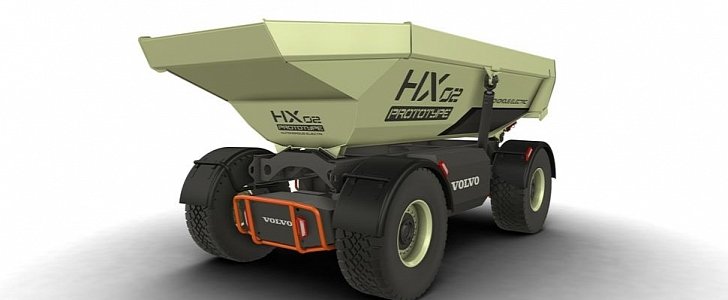The phrase “going electric” got a new meaning this week after Volvo’s Construction Equipment subsidiary unveiled a project it calls the Electric Site, at the Vikan Kross quarry near Gothenburg in Sweden.
The site, which usually produces aggregates for construction purposes as well as for asphalt and cement, uses for the daily tasks mainly gas-guzzling machinery. Starting August 29, part of that machinery has been replaced with electric and autonomous Volvo machines in an attempt to prove their viability.
Volvo deployed on-site eight battery-electric, autonomous load carriers, an excavator prototype, and an electric hybrid wheel loader. All will be put through their paces for the next ten weeks, and are hoped to account for a 95 percent reduction in carbon emissions and 25 percent reduction in total cost of operations.
The electric hybrid wheel loader LX1, for instance, can deliver up to a 50 percent improvement in fuel efficiency and is also being tested in the U.S. by Waste Management – the largest environmental services and recycling company in North America.
The hybrid uses electric drive motors mounted at the wheels, electrically driven hydraulics, an energy storage system, a smaller diesel engine and new machine architecture. Despite the smaller size, Volvo says the LX1 can perform the work of a loader that is one size larger.
“This is the first time that anything like this has been attempted in the quarrying industry and, if successful, Electric Site could serve as a blueprint for transforming the efficiency, safety and environmental impact of quarries around the world,” said Gunnar Hagman, CEO of Skanska Sweden, the operator of the quarry.
The Electric Site concept envisioned by Volvo is meant to electrify a transport stage in a quarry – from excavation to primary crushing and transport to secondary crushing. The machines deployed this week are just the start of that process, says Volvo.
Volvo deployed on-site eight battery-electric, autonomous load carriers, an excavator prototype, and an electric hybrid wheel loader. All will be put through their paces for the next ten weeks, and are hoped to account for a 95 percent reduction in carbon emissions and 25 percent reduction in total cost of operations.
The electric hybrid wheel loader LX1, for instance, can deliver up to a 50 percent improvement in fuel efficiency and is also being tested in the U.S. by Waste Management – the largest environmental services and recycling company in North America.
The hybrid uses electric drive motors mounted at the wheels, electrically driven hydraulics, an energy storage system, a smaller diesel engine and new machine architecture. Despite the smaller size, Volvo says the LX1 can perform the work of a loader that is one size larger.
“This is the first time that anything like this has been attempted in the quarrying industry and, if successful, Electric Site could serve as a blueprint for transforming the efficiency, safety and environmental impact of quarries around the world,” said Gunnar Hagman, CEO of Skanska Sweden, the operator of the quarry.
The Electric Site concept envisioned by Volvo is meant to electrify a transport stage in a quarry – from excavation to primary crushing and transport to secondary crushing. The machines deployed this week are just the start of that process, says Volvo.

